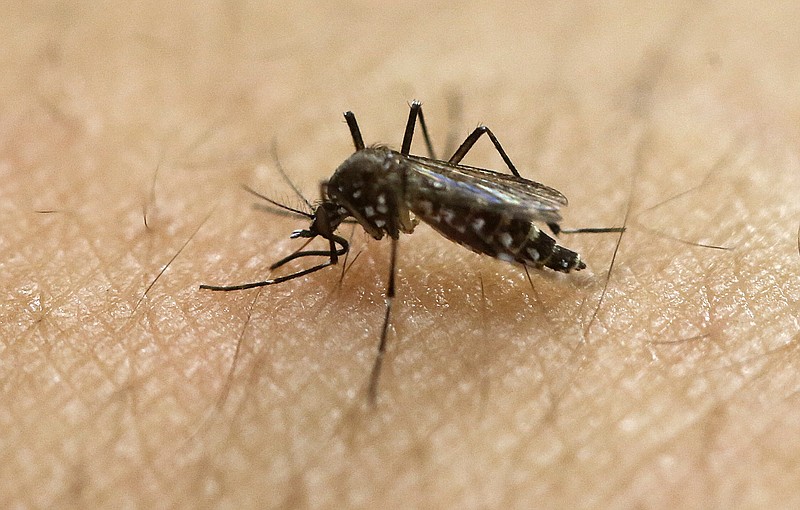Chattanooga health officials say they need more blood donors because the Zika virus is forcing authorities in certain parts of the U.S. to halt blood donations in those areas.
Florida officials announced Friday they are halting blood donations in Miami-Dade and Broward counties because the Zika virus apparently has spread into the local mosquito population. Four people - one woman and three men - have been identified as carrying the virus, apparently the first cases transmitted by mosquitoes in the continental United States.
Before Friday, some 1,650 people in the U.S. had been diagnosed with the virus, but they apparently were infected when they traveled to countries where it is widespread, including much of the Caribbean and Central and South America.
Health officials have been predicting the virus would appear in the U.S. Zika is spread when a certain type of mosquito bites an infected person and then transfers the virus to another person with another bite. As the number of people in the U.S carrying the virus rose, the odds increased that one of them would be bitten by a mosquito and infect the local mosquito population.
The virus can also spread through sexual activity.
"Unfortunately, beaches are a hot vacation spot in the summer, and we expect many of our regular blood donors to have recently traveled to that region, making them ineligible to donate blood for up to four weeks," said Dr. Liz Culler, medical director for Blood Assurance, the regional blood center for the Chattanooga area. "We critically need people in the community who have not traveled there to step up and help us meet our need for blood, which has been at an extreme low throughout the summer months."
Blood Assurance needs 540 donors every day to serve the 51 counties and more than 75 health care facilities it serves in Tennessee, Georgia, Alabama, North Carolina and Virginia.
While the Zika virus is not dangerous to most people, it can cause severe birth defects, so pregnant women are at high risk.
Some medical experts said pregnant women should not travel to the Miami area, especially if it involves spending time outdoors. However, the U.S. Centers for Disease Control and Prevention is not recommending people avoid traveling to South Florida, according to The Associated Press.
The virus is so mild that most infected people don't even know they are sick, but infection during pregnancy can cause babies to be born with disastrously small heads and other severe brain-related defects.
The AP reported the four Florida infections are thought to have occurred in a small area just north of downtown Miami in the Wynwood arts district, Florida Gov. Rick Scott said at a news conference Friday.
The area, known for bold murals spray-painted across warehouses, art galleries, restaurants and boutiques, is rapidly gentrifying and has a number of construction sites where standing water can collect and serve as a breeding ground for the tropical mosquito that carries Zika.
It's the only part of the state being tested for potential local transmission of Zika, Scott said.
"If I were a pregnant woman right now, I would go on the assumption that there's mosquito transmission all over the Miami area," said Dr. Peter Hotez, a tropical medicine expert at the Baylor College of Medicine.
He said that while health officials have reported four infections, there probably are more that have not been diagnosed, and that people should not be surprised if Zika-carrying mosquitoes soon are found in Louisiana and Texas as well, according to the AP.
Dr. Tom Frieden, the CDC director, said the evidence suggests the mosquito-borne transmission occurred several weeks ago over several city blocks.
Zika primarily spreads through bites from a specific species of tropical mosquito that also can carry other diseases, including dengue fever and chikungunya.
The mosquito is found in urban parts of the South, the AP reported. But it doesn't tolerate cool weather and won't be found in large numbers outside South Florida after mosquito season peaks in August and September.
Health officials think the U.S. should be able to avoid a major outbreak because of better sanitation, better mosquito control and more extensive use of window screens and air conditioners. Florida and other states have successfully fought off outbreaks of dengue and chikungunya in recent years.
Scott has allocated more than $25 million in state funds for Zika response, and the White House and the CDC have provided more than $10 million.
However, Congress left on a seven-week vacation without giving the Obama administration any of the $1.9 billion it sought to battle Zika, according to The Associated Press.
White House spokesman Eric Schultz called that "regrettable" and said: "Today's news should be a wake-up call to Congress to get back to work."
Zika-fighting efforts include pesticide spraying, setting of traps and eliminating standing water around homes.
Blood Assurance officials said that to be eligible to donate blood, donors must be at least 17 years old (16 years old with parental consent), weigh 110 pounds or more and be in good health. For more information, visit www.bloodassurance.org or call 1-800-962-0628.
The Associated Press contributed to this story.
Contact staff writer Steve Johnson at sjohnson@timesfreepress.com or 423-757-6673.
